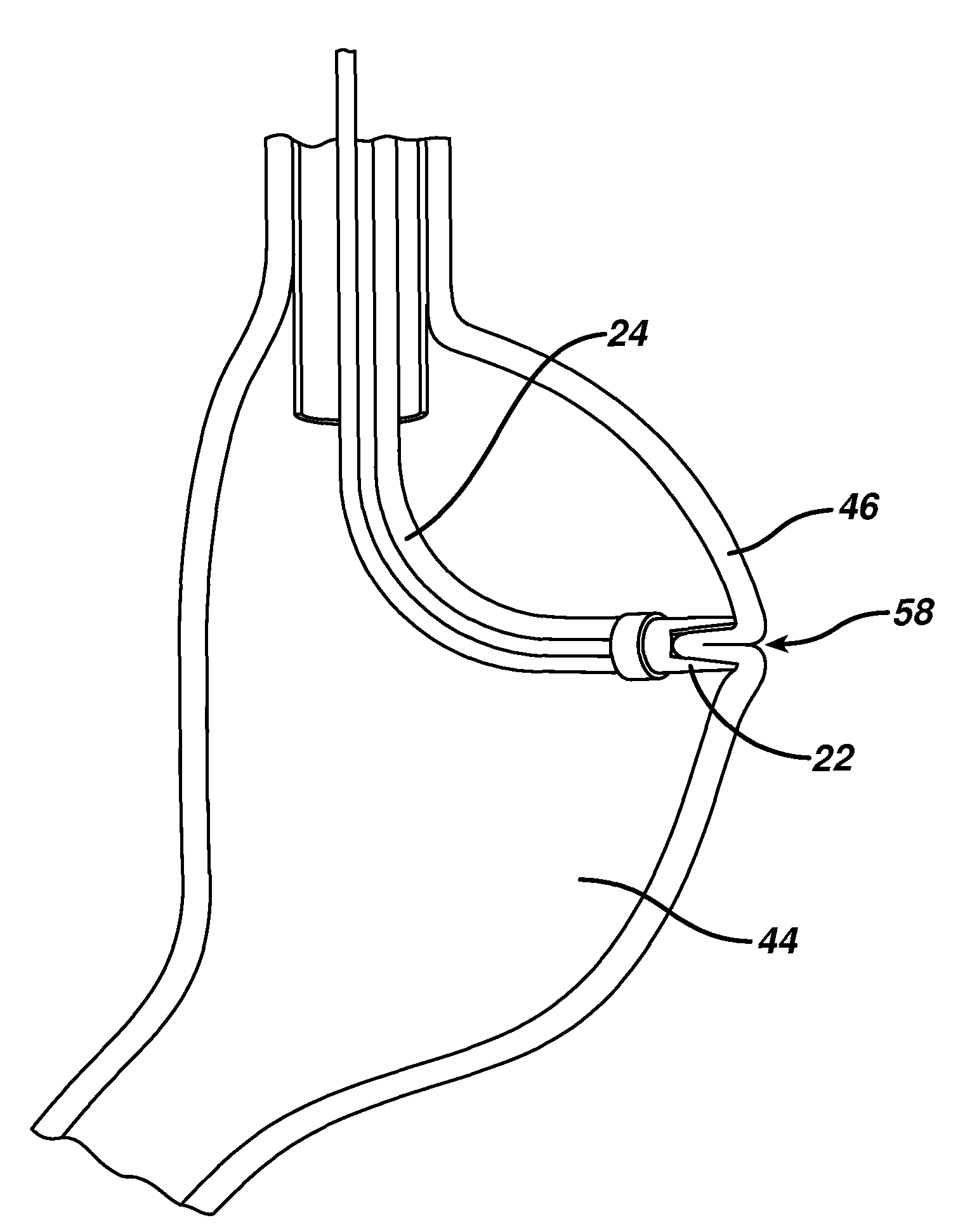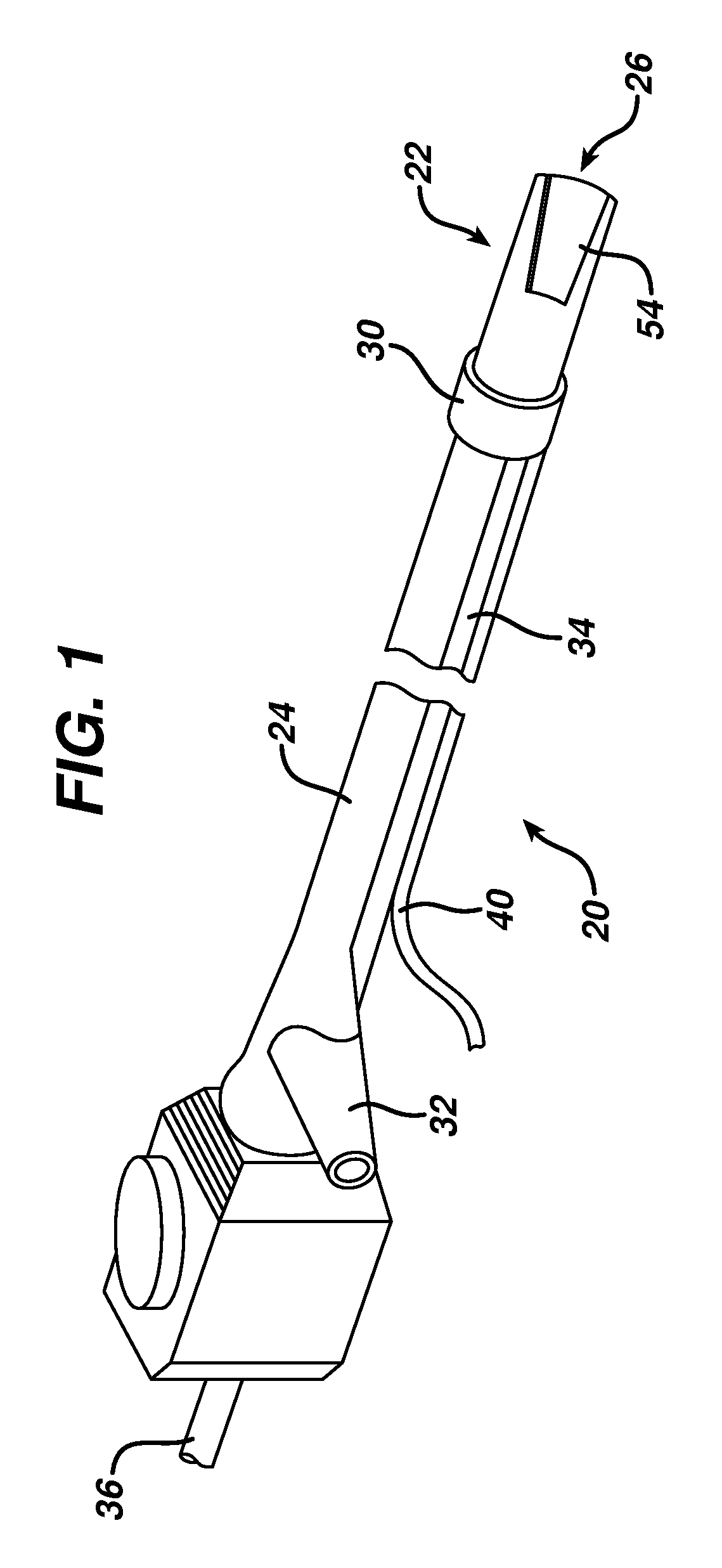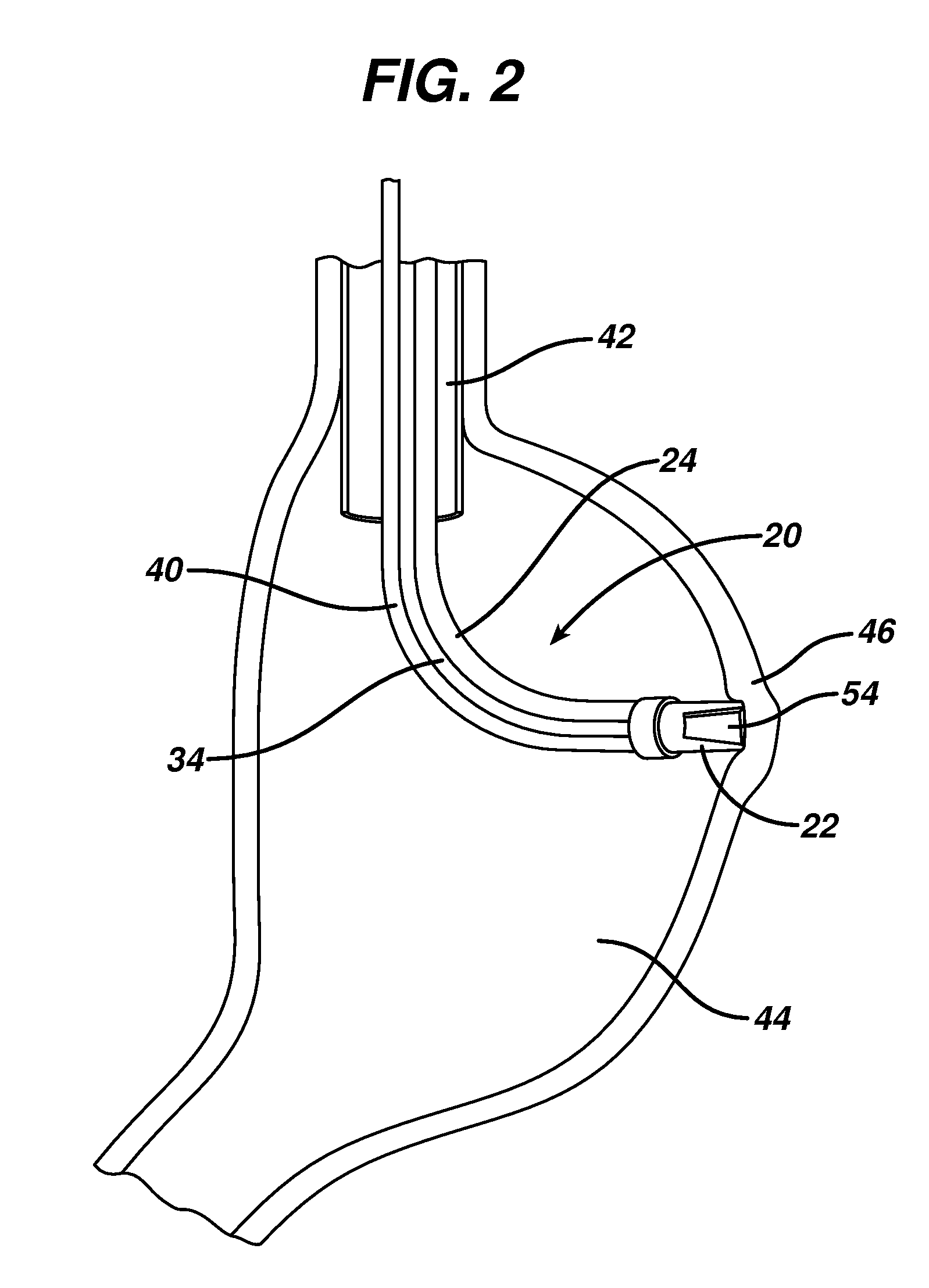Method for plicating and fastening gastric tissue
a gastric tissue and transoral technology, applied in the field of bariatric treatment methods, can solve the problems of increasing the risk of heart disease, stroke, diabetes, pulmonary disease, accidents, etc., and numerous non-operative therapies for morbid obesity have been tried with virtually no permanent success, and failed to correct the condition
- Summary
- Abstract
- Description
- Claims
- Application Information
AI Technical Summary
Benefits of technology
Problems solved by technology
Method used
Image
Examples
first embodiment
[0050]FIG. 1 illustrates a first embodiment for a tissue plicating device 20 of the present invention. Tissue plicating device 20 comprises a folding member or end effector 22 connected at the distal end of an elongated member such as a flexible endoscope 24. Folding member 22 includes an open distal end 26 for receiving tissue drawn into the device. A connecting member 30 extends between folding member 22 and endoscope 24 to securely attach the folding member to the endoscope, so that the folding member is transferred along with the endoscope during transoral insertion and removal. Endoscope 24 includes a side port 32 providing access to a working channel within the endoscope, as well as visualization capabilities for guiding device 20 to a desired location within a gastric cavity. Vacuum is provided to folding member 22 for drawing tissue into the device. In the embodiment shown in FIG. 1, vacuum is provided through a separate vacuum line 34, which extends along the exterior lengt...
third embodiment
[0065]FIG. 17 illustrates a third embodiment for a tissue fastener in accordance with the present invention. As shown in FIG. 17, in this embodiment the tissue fastener comprises a tubular-shaped clip 132. Clip 132 has an inner diameter that is sized to contour the outer perimeter of connecting member 30 to retain the clip thereon until released onto a fold. Clip 132 has an open distal end 134 for engaging a tissue fold. A pair of semi-circular jaws 136, 140 extends along the axial length of clip 132 for engaging a tissue fold as the clip is transferred onto the fold through control connection 40. Jaws 136, 140 each have a rounded distal end for facilitating transfer of clip 132 onto the tissue fold. A plurality of teeth, indicated by reference numeral 142, extend from the inwardly facing edges of jaws 136, 140 to grasp and hold tissue within the clip, thereby preventing the clip from dislodging from the tissue fold after fastening. Clip 132 can be manufactured from either a plastic...
PUM
 Login to View More
Login to View More Abstract
Description
Claims
Application Information
 Login to View More
Login to View More - Generate Ideas
- Intellectual Property
- Life Sciences
- Materials
- Tech Scout
- Unparalleled Data Quality
- Higher Quality Content
- 60% Fewer Hallucinations
Browse by: Latest US Patents, China's latest patents, Technical Efficacy Thesaurus, Application Domain, Technology Topic, Popular Technical Reports.
© 2025 PatSnap. All rights reserved.Legal|Privacy policy|Modern Slavery Act Transparency Statement|Sitemap|About US| Contact US: help@patsnap.com



